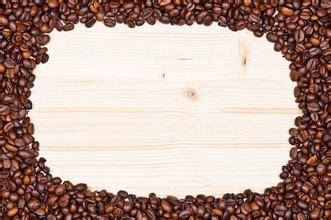Introduction to the flavor characteristics of Brazilian yellow bourbon coffee beans
Introduction to the flavor characteristics of Brazilian yellow bourbon coffee beans
Other kinds of Brazilian coffee, such as Rio and Parana, can be produced in large quantities because they do not require too much care. Although the taste is rough, it is a kind of high-quality and inexpensive coffee, which has its own standards because it is distributed all over Brazil and varies in quality (NO.2~NO.8 according to the number of sundries, NO.13~NO.19 according to the size of beans, and six grades according to taste). Almost all Arabica varieties are of good quality and stable in price. The most famous one is "Brazil Santos", which has been a necessity of blended coffee and is familiar to the public since ancient times. Recently, the "Guilma Cup" is also highly rated.
● quality beans: Sangduo NO.2, size NO.18
The characteristics of ● taste: mild, bitter medium, soft flavor.
The best fried culture degree of ●: medium fried culture.
Brazil is vividly compared to the "giant" and "monarch" of the coffee world. There are about 3.97 billion coffee trees there, and small farmers now grow 75% of Brazil's total coffee production. The number of coffee producers in Brazil is twice or even three times that of Colombia, the second largest coffee producer in the world.
Unlike in the past, Brazil's economy is now less dependent on coffee, which accounts for only 8% to 10% of GDP. Before World War II, Brazil accounted for 50% or more of the world's coffee production, and now it is close to 30%. But the country's impact on the world's coffee, especially on coffee prices, is significant. For example, two frost disasters in 1994 caused a sharp rise in global coffee prices.
In terms of natural conditions, Brazil is in the tropics, with a tropical rain forest climate in the north, hot and humid all the year round, suitable for tropical crops, coffee trees are sunny crops, and sufficient sunlight is the condition for their growth. Historically, Brazil has been a Portuguese colony for a long time. In order to meet the needs of Western Europe, it has planted single crops for a long time and developed the tropical plantation economy, so Brazilian coffee has been its pillar industry for a long time. From the market point of view, coffee and its processed products are rich in caffeine, exhilarate and play an important role in the working group dominated by mental workers, so they play a huge role in modern society, so the market is broad. Taken together, Brazil ranks first in coffee production in the world.

Important Notice :
前街咖啡 FrontStreet Coffee has moved to new addredd:
FrontStreet Coffee Address: 315,Donghua East Road,GuangZhou
Tel:020 38364473
- Prev

Katim Coffee Bean Flavor description introduction to the characteristics of varieties in the manor area
Katim coffee bean flavor description taste manor variety characteristics introduced that this variety belongs to the variety of high and stable yield. The results of trial planting in different ecological types show that as long as it is planted in accordance with high-yield cultivation techniques, a higher yield will be obtained. the average yield per mu is more than 150 kg, and the small area can reach more than 400 kg. 1. The state-run Lujiang farm in Baoshan City planted 12.6 mu in March 1991.
- Next

Introduction to the taste of Ethiopian honey kiss coffee flavor description grinding scale production area
Ethiopian honey kiss coffee flavor description grinding scale production area taste introduction in Ethiopia, people are proud of coffee and regard it as a gift to the world. To this day, many Ethiopian families still retain the ceremony of daily coffee celebrations, with the hostess of each family inviting her family and neighbors to have coffee more than once a day. In their view, this is a sign of friendship and respect.
Related
- Detailed explanation of Jadeite planting Land in Panamanian Jadeite Manor introduction to the grading system of Jadeite competitive bidding, Red bid, Green bid and Rose Summer
- Story of Coffee planting in Brenka region of Costa Rica Stonehenge Manor anaerobic heavy honey treatment of flavor mouth
- What's on the barrel of Blue Mountain Coffee beans?
- Can American coffee also pull flowers? How to use hot American style to pull out a good-looking pattern?
- Can you make a cold extract with coffee beans? What is the right proportion for cold-extracted coffee formula?
- Indonesian PWN Gold Mandrine Coffee Origin Features Flavor How to Chong? Mandolin coffee is American.
- A brief introduction to the flavor characteristics of Brazilian yellow bourbon coffee beans
- What is the effect of different water quality on the flavor of cold-extracted coffee? What kind of water is best for brewing coffee?
- Why do you think of Rose Summer whenever you mention Panamanian coffee?
- Introduction to the characteristics of authentic blue mountain coffee bean producing areas? What is the CIB Coffee Authority in Jamaica?

